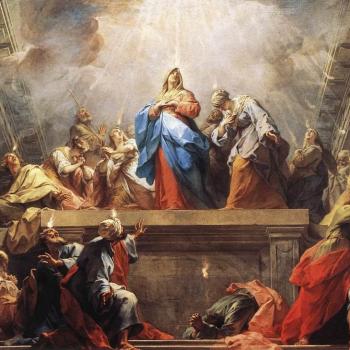Well, the day has finally arrived: October 31, 2017, the 500th anniversary of the Reformation.
On this day an obscure German monk, Martin Luther, putatively nailed his 95 Theses to the Castle Church door of Wittenberg, Saxony, thereby launching Protestant Christianity and, if you believe some historians, the modern world.
That many people can’t remember what the Protestant Reformation was all about might not please scholars. But at least it appears to be serving the cause of Christian unity, a major causality of the Reformation and a leading goal of modern Christian theology.
This is according to two recent surveys conducted by the Pew Research Center. One asked Americans what they knew about the Reformation and how much its defining ideas—belief in the Bible’s theological sufficiency (sola scriptura) and salvation by faith alone (sola fide)—still shaped their faith. Another survey sought similar information in Western Europe–including Germany, the cradle of the Reformation and once the site of bloody Catholic-Protestant conflicts.
Only one quarter of American Protestants correctly identified salvation by faith alone as a core Protestant belief and one in five guessed that the split between Protestants and Catholics was caused by “the Great Crusade.” Around three in ten could not identify Martin Luther as the catalyst of the Reformation.
Across European countries, a median of 29% of Protestants agreed with the Protestant reformers’ position that faith alone permits salvation, while 49% said that both faith and good works were necessary—a position traditionally associated with Roman Catholicism.
But historical forgetfulness appears to be a boon to Christian unity. The European survey shows that “the vast majority of Protestants [and] Catholics [are] willing to accept each other as family members.” And this is especially true in Germany (now led by a pastor’s daughter), where 97% of Protestants and 98% of Catholics are willing to accept members of the other faith into their families.
In the United States, six in ten US adults, including 57% of Protestants and 65% of Catholics, believe that Protestants and Catholics are more similar than different in their beliefs. The days of nativist anti-Catholicism, which once bristled at the prospects of JFK’s Catholic presidency, appear long over.
What has led to the surveys’ results? Many factors to be sure, but I would hazard that growing secularization—more extensive in Europe than America—has led many to downplay or disregard traditional intra-Christian divisions. Pan-Christian, worried awareness of Islam after 9/11 is perhaps another factor dissipating older differences and stereotypes.
To be sure, historical amnesia is probably not the surest basis for peacemaking. In an ideal world, Christians of various stripes would be able to work through their differences knowledgeably.
And what of those, often denominational and church leaders, doubling down on past divisions—sometimes in the service of self-interest? How should they commemorate the Reformation this October?
One provocative possibility comes from the late dean of American church historians, Jaroslav Pelikan. For the interests of truth and conciliation to be served, Pelikan once argued, Protestants and Catholics should think of the Reformation as a “tragic necessity.” Partisans on both sides, he elaborated, will have difficulty acknowledging this: “Roman Catholics agree that it was tragic, because it separated many millions from the true church; but they cannot see that it was really necessary. Protestants agree that it was necessary, because the Roman church was so corrupt; but they cannot see that it was such a tragedy after all.” Perhaps at this historical milestone, Protestants should try to see why Catholics have felt the Reformation a tragedy, and Catholics consider why Protestants have felt it necessary.
Pelikan’s reflections might not be the final word on the Reformation’s quincentennial. But they might not be a bad place to start. Taking them seriously might even help church leaders, albeit with greater knowledge and influence, arrive at where people in the pew already seem to be.
Thomas Albert Howard is Professor of Humanities and holder of the Duesenberg Chair in Ethics at Valparaiso University and the editor (with Mark A. Noll) of Protestantism after 500 Years (Oxford, 2016) and Remembering the Reformation: An Inquiry into the Meanings of Protestantism (Oxford, 2016).
Note: This blog (in a slightly different form) originally appeared as a blog for Oxford University Press (25 October 2017).













